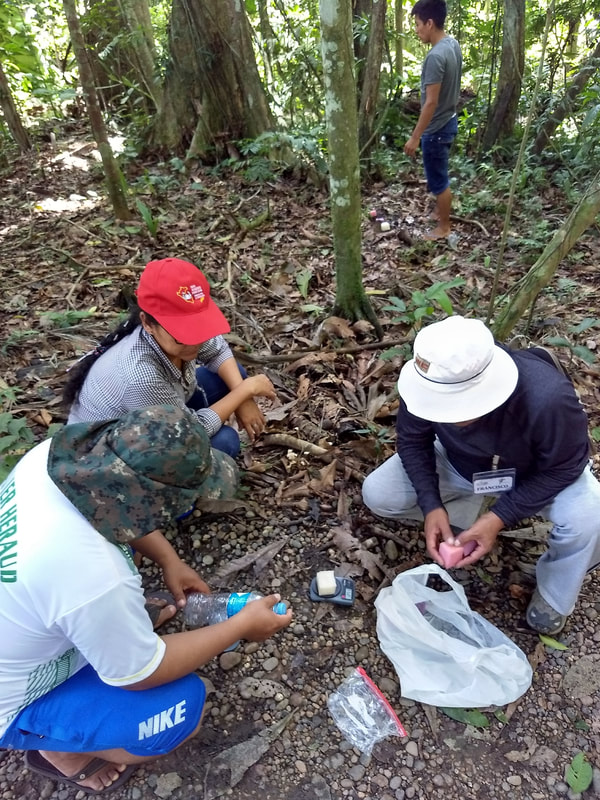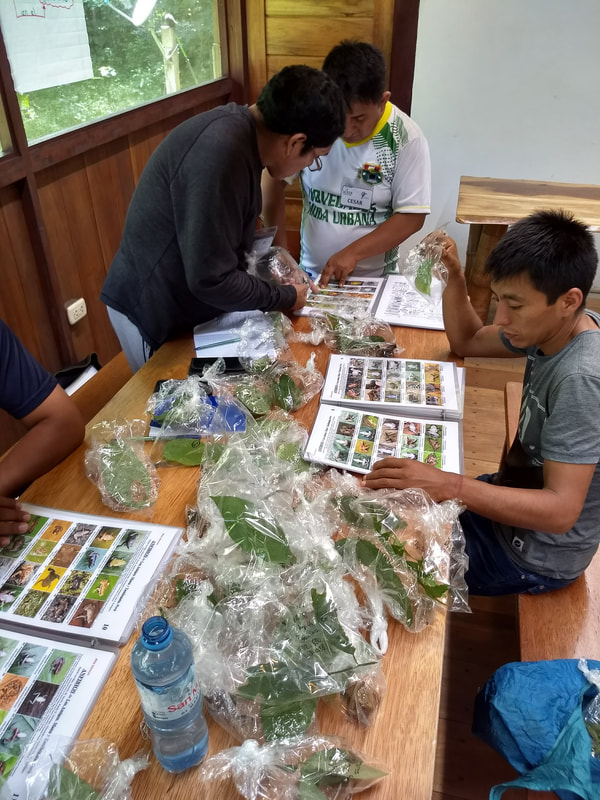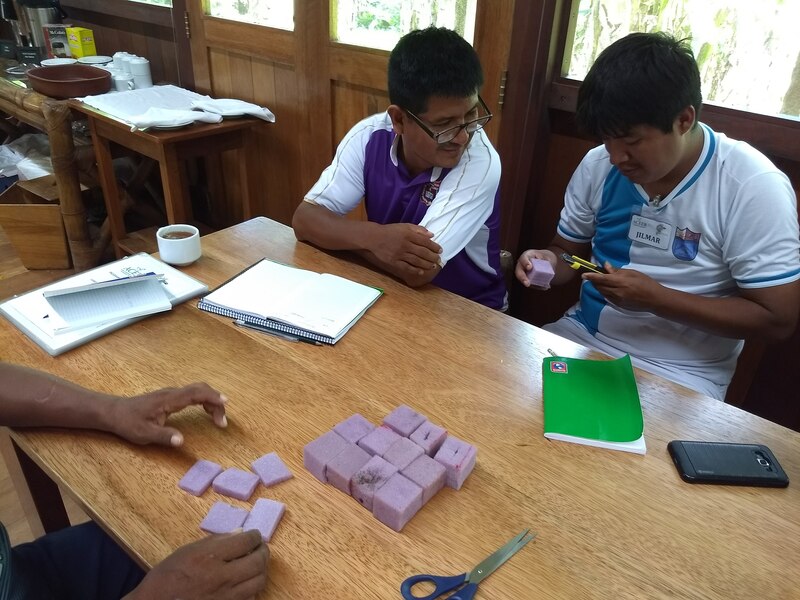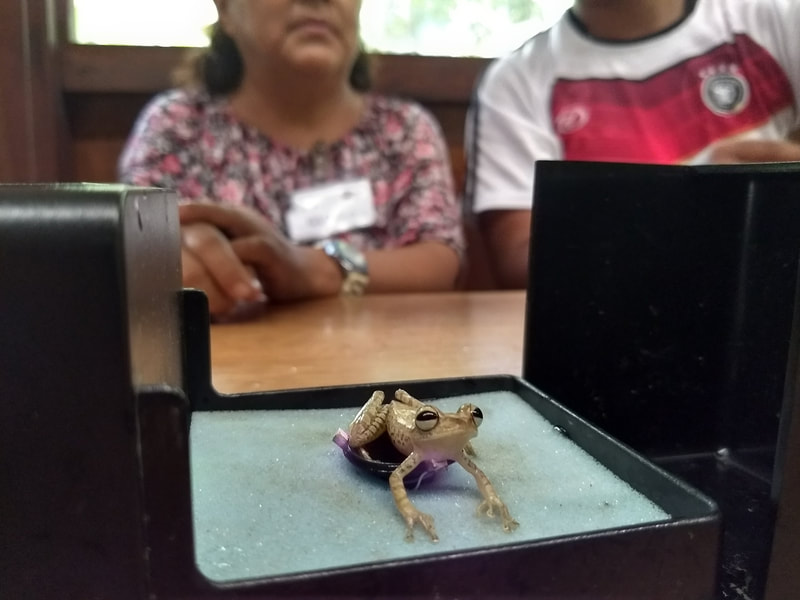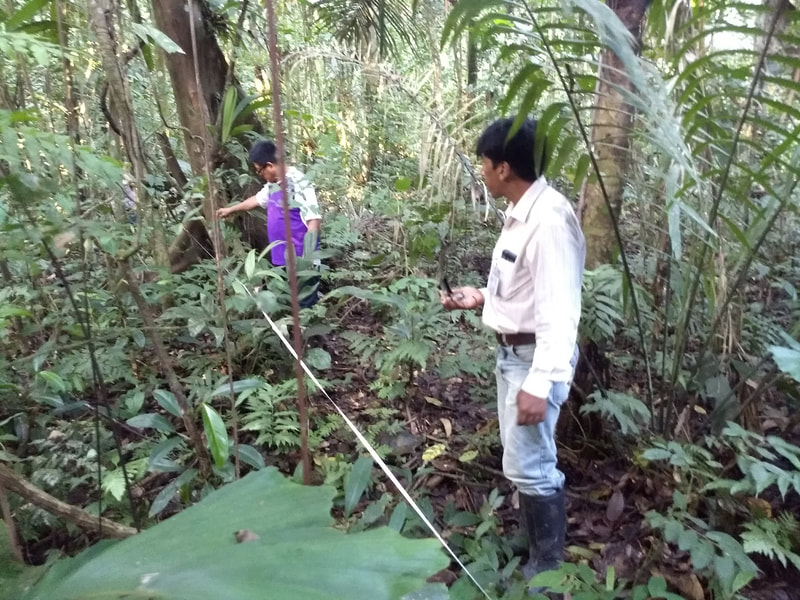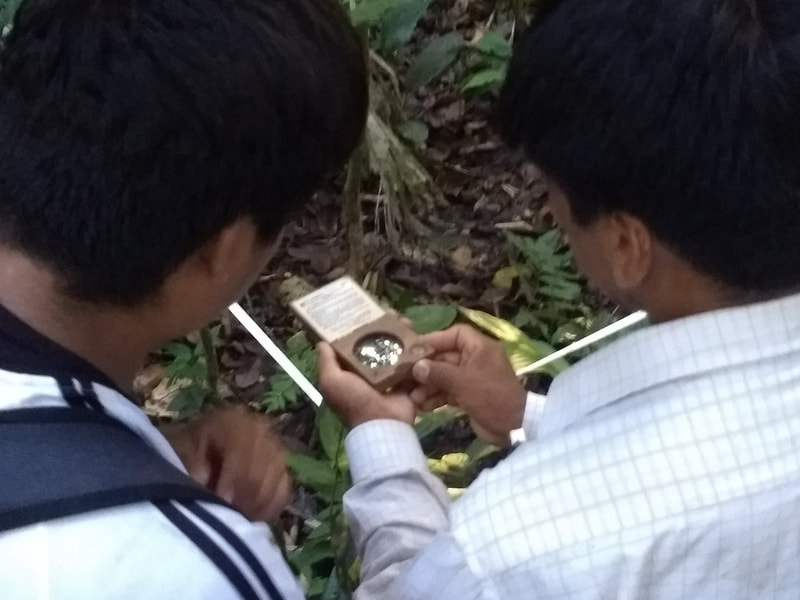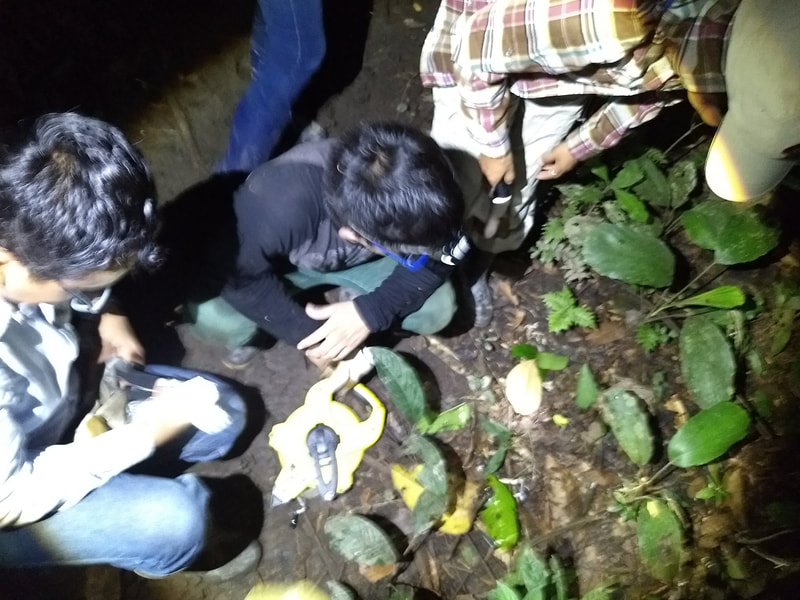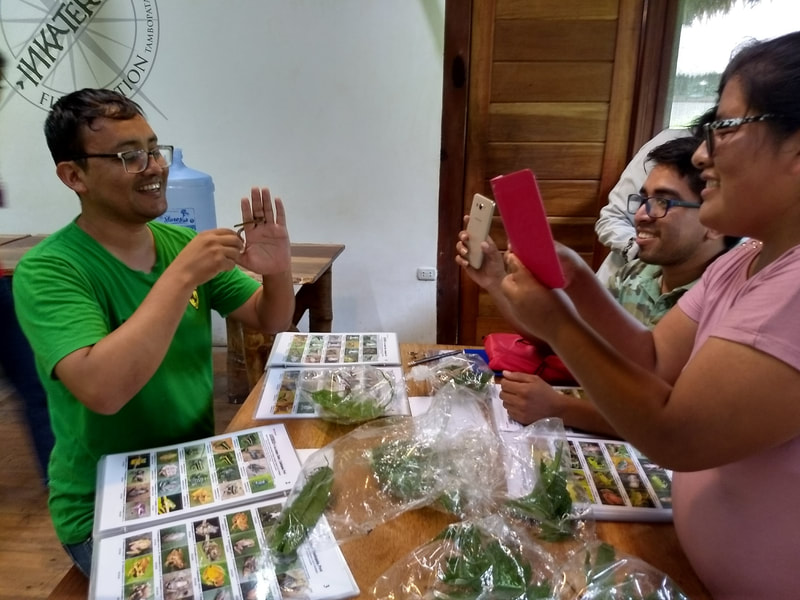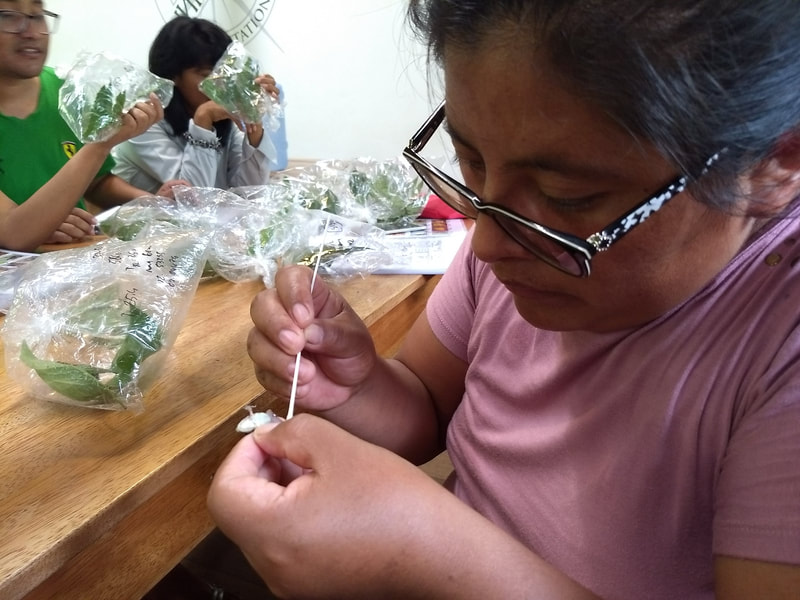Everything we do includes an education and training component. Our lab is open to all motivated and interested students and researchers. Our lab is inclusive. We strive to communicate science to a diverse audience with the goal of increasing people's appreciation of nature, the richness and beauty of life forms, and enhancing curiosity to understand ecological and evolutionary processes. Our mission is to do science for the good of biodiversity conservation.
Here are some examples of education and training activities in our lab.
Field courses in the Amazon-Andes region
The eastern slopes of the Andes are among the most species-rich regions on the planet. Since 2012 we have organized or participated in six field courses in Peru, training students and teachers in tropical biology and disease ecology. Courses with the Amazon Center for Environmental Education and Research, http://www.aceer.org/) in the lowland Amazon trained over 80 primary and secondary school teachers in tropical ecology. The video below (https://www.youtube.com/watch?v=-UHSPzHUpvM) summarizes some of the content and activities covered during the lowland course (video in Spanish). Courses in the cloud forests and high Andes trained groups of over 60 international students, including students from the US, Peru, Latin America and Europe in studies of wildlife diseases and climate change using amphibians as study organisms.
qPCR training at FIU
FIU is the the largest producer of STEM (Science, Technology, Engineering and Math) degrees for minorities in the country. We are very well positioned to provide training that will prepare minority STEM graduates for their degrees and careers. Practical knowledge of laboratory techniques, especially molecular techniques, is essential to develop a competitive set of skills for the job market, and to prepare graduates for future challenges facing our society. Our lab has an open door policy to students interested in learning the principles of qPCR, a technique we routinely use for our research. Since 2013, our lab has trained more than 20 undergraduate and graduate students, many from underrepresented groups in STEM, in these molecular techniques.
